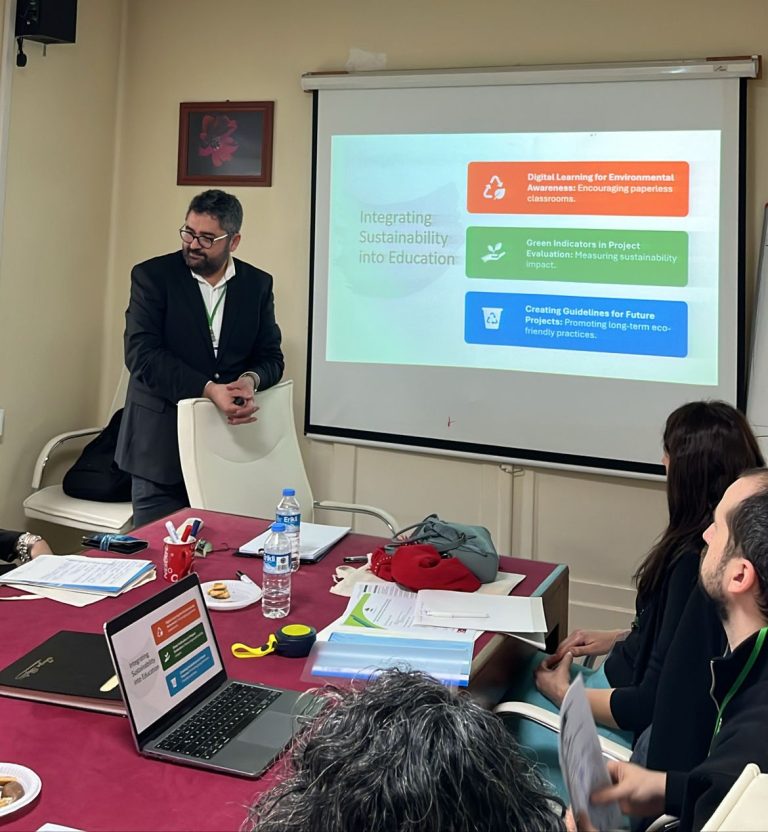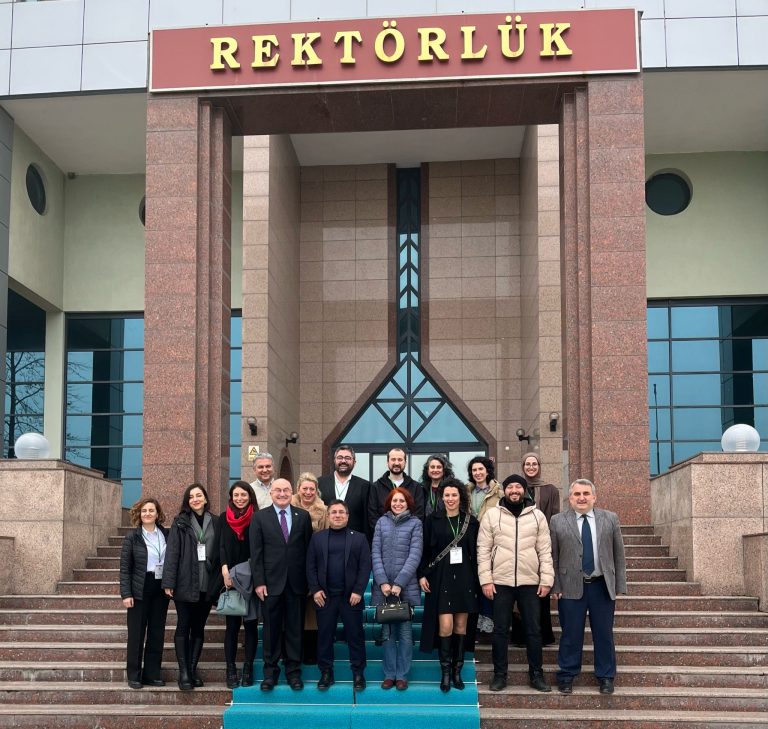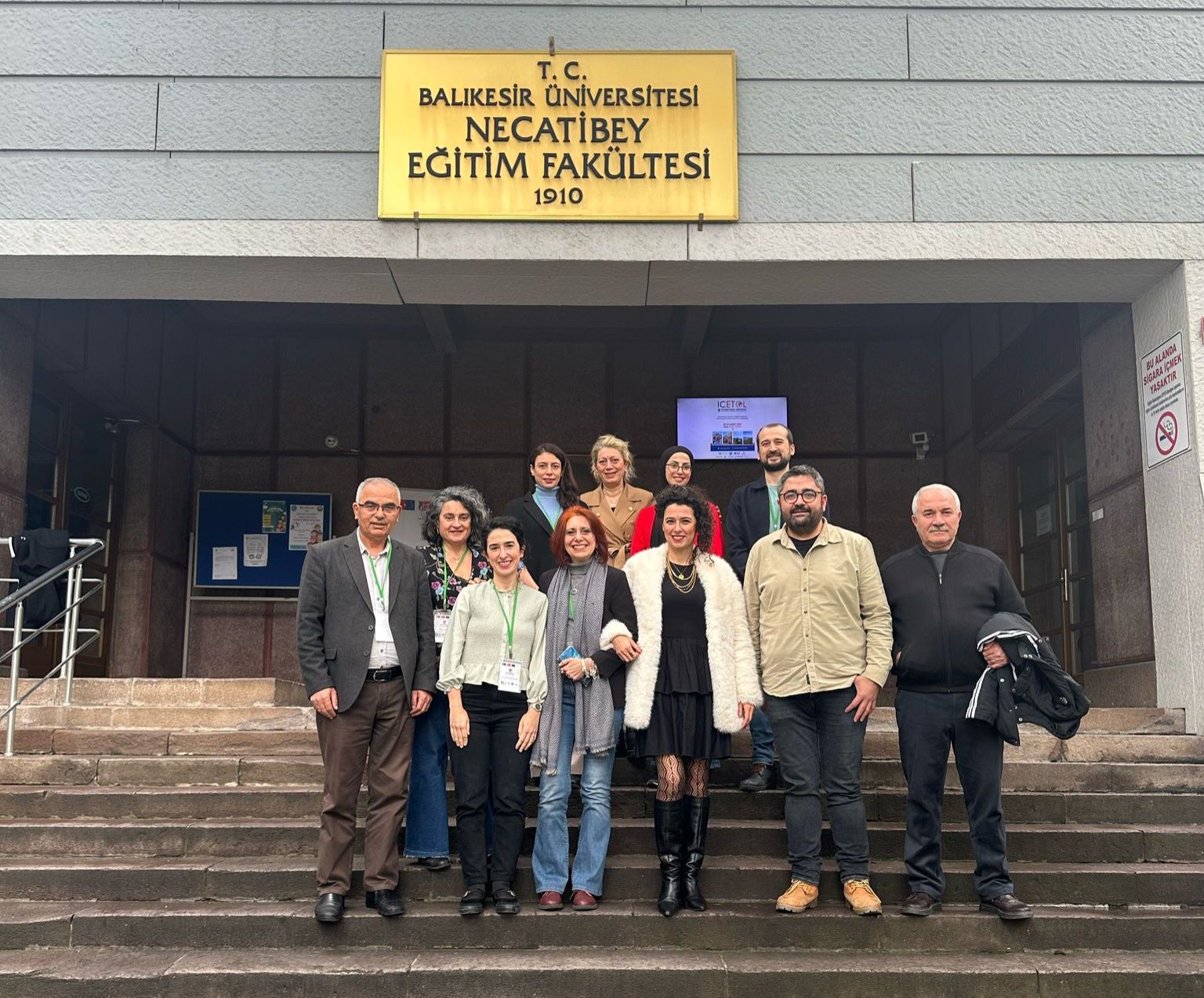EcoLingua Curriculum: Digitally Enhanced Pedagogy for Integrating Environmental Issues into Language Teaching
The EcoLingua project was officially launched with a successful transnational meeting on 17 February 2025.Partners from Lithuania, Italy, Spain, and Türkiye convened to align on shared goals, delivery strategies, and collaboration protocols. The consortium’s common purpose is clear: embed ecological awareness into EFL curriculaand support this integration through digital innovation and gamified learning pathways.
Consortium
- Coordinator: Balıkesir University (Türkiye) – led by Dr. Mehmet Saraç and Dr. Serhat Güzel, Necatibey Faculty of Education, Department of English Language Teaching
- Partners: Gaziantep University (Türkiye); Bursa Özlüce Rasim Özdenören Anatolian Imam Hatip High School(Türkiye); Vilnius University (Lithuania); University of Rome Tor Vergata (Italy); University of Burgos (Spain)


About the project
EcoLingua is funded under the Erasmus+ KA220 – Cooperation Partnerships in School Education (2024 call) and is coordinated by Balıkesir University. Following a competitive selection process, the project was awarded €250,000 to design research-informed, teacher-friendly solutions that bring sustainability literacy into everyday English language teaching.
What we will deliver
-
EcoLingua Curriculum Framework: Practical guidance for integrating environmental themes across EFL levels, aligned with classroom realities.
-
Digitally Enhanced Lesson Modules: Ready-to-use, multilingual resources featuring interactive tasks, micro-learning, and gamified challenges to boost motivation and retention.
-
Teacher Professional Learning: Workshops and online micro-credentials focusing on digital pedagogy, gameful design, and assessment for sustainability.
-
Open Toolkit: Classroom rubrics, project-based learning templates, and checklists to help teachers adapt materials to different contexts and technologies.
Highlights from the transnational meeting (17 February 2025)
-
-
Agreed project objectives, milestones, and quality assurance steps
-
Clarified work packages, roles, and communication workflows
-
Set initial timelines for curriculum design, piloting, and teacher training
-
Established principles for accessibility, inclusion, and open dissemination
-
What’s next
In the coming months, EcoLingua will roll out pilot activities, school-based fieldwork, and teacher training eventsacross partner countries—strengthening international cooperation and building a sustainable pathway for EFL classrooms.


